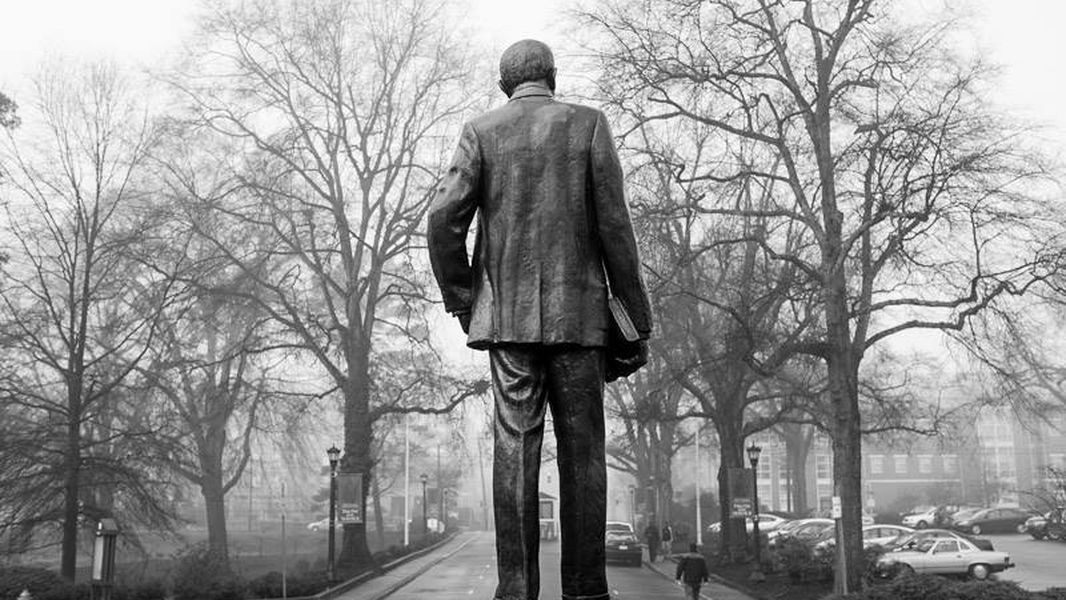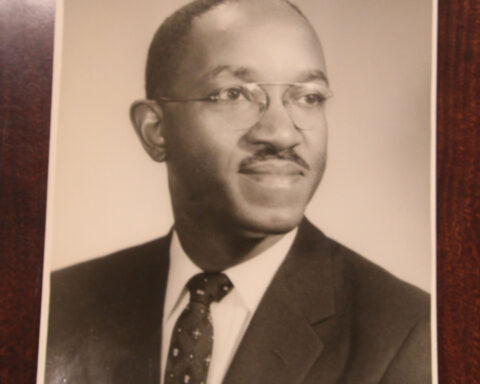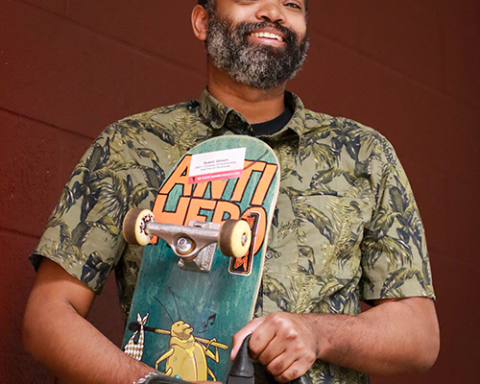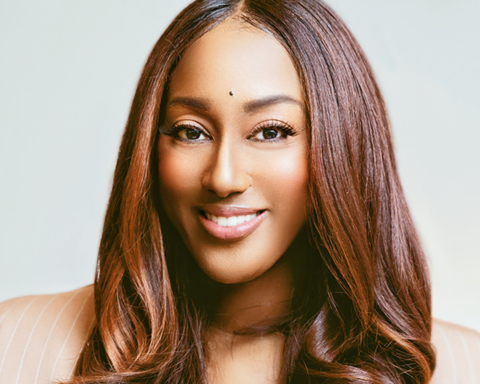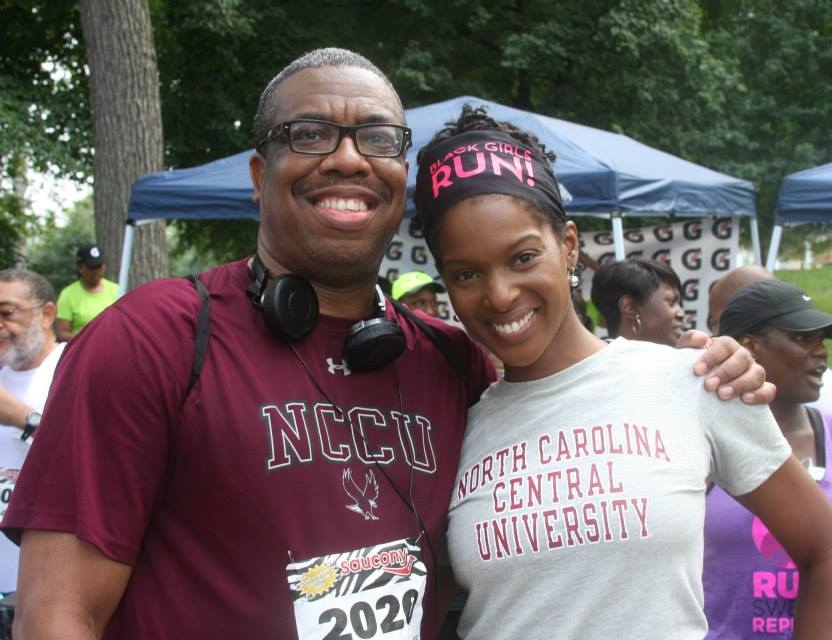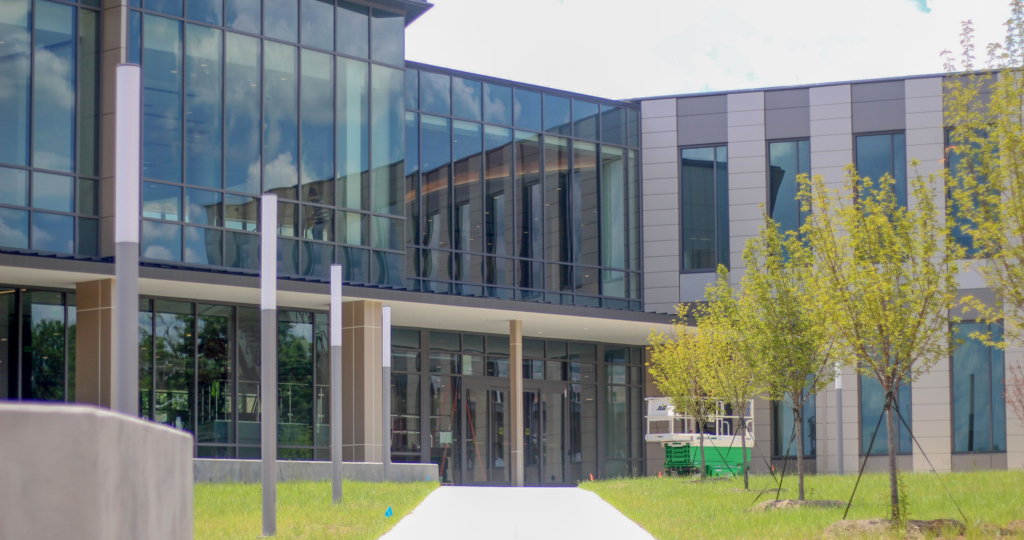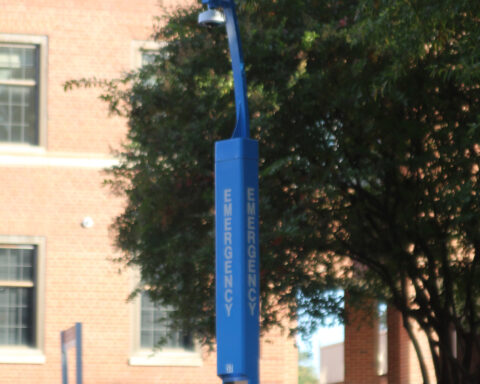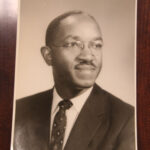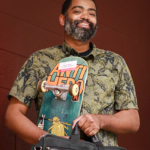In the 1970s, two future faculty members arrived at N.C. Central University as freshmen.
This would also be around the time NCCU became a constituent member of the University of North Carolina University System.
Upon joining the faculty after their graduate studies, both witnessed the university’s evolution under the UNC system, from the technological, social and physical changes of the school.
Regina Alston, an English instructor at NCCU for over 40 years, has seen a lot of change.
“When I first came to NCCU in 1970 technology was different from where it is now. There were NO cell phones. Things like computers or the internet did not exist,” Alston said.
“In fact, as an undergraduate student, I had a manual typewriter. You had to shift a lever to go to the next line.”
Alston received her bachelor’s and her master’s degrees from NCCU in 1974 and 1977.
Even though Alston had been accepted to attend the University of North Carolina at Chapel Hill, she ultimately chose NCCU.
She said it was one of the best decisions of her life.
“The HBCU experience was a wealth of knowledge about history and pride in being an African American. Public schools taught some information about contributions that African Americans made, but I learned so much more when attending NCCU,” Alston said.
She joined the NCCU faculty in 1978.
Debra Parker, a Behavioral and Social Sciences professor who has taught for over 20 years at NCCU and is the former dean of the department, has also witnessed the evolution of the university.
“When I attended NCCU we had to stand in line in order to get a card that allowed us to stand in line to register for classes. Then stood in line to apply for financial aid and work-study. Then stood in another line to pay our tuition bill.
“The lines were wrapped around buildings and we often arrived at five or six in the morning to get a decent place in line,” Parker said.
Parker first enrolled at NCCU in 1976 and graduated in 1980.
She was a first-generation college student and Durham native who first earned her bachelor’s and then her master’s degrees in Human Development and Family studies.
Parker went on to earn her Ph.D. at the University of North Carolina at Greensboro in Family and Consumer Science Education.
In 1990, she earned a Master’s of Education in Special Education at NCCU.
Parker moved throughout the ranks from assistant to associate professor and became a full professor in 1999. She also served as chair of the Human Sciences department for 15 years prior to becoming the dean.
Alston and Parker both say the internet has, in many ways, simplified and reduced the steps needed to find and retrieve information.
Alston says it’s a good thing that students can take advantage of the opportunities provided by new technologies.
But says she now hears a whole new set of excuses from students.
“Without computers, we had no excuses for not having homework or assignments turned in. We could not say that our ‘Wi-Fi was down,’ or that the ‘link to the assignment did not work,’” Alston said.
A Durham native as well, Alston stayed in Baynes Hall and New Residence as an undergraduate.
Old Chidley Hall, she said, was an all-male dormitory and Baynes, a freshman residential hall, had a 10 p.m. curfew. In her day New Residence II, Ruffin Hall, and Eagle Landing weren’t built yet.
Alston was influenced by her parents to live on campus for a richer college experience.
“There were outstanding faculty members, some of whom had national reputations. It was inspiring to have teachers who looked like myself and set very high standards, both academically and personally,” she said.
“Their demeanor was professional. They led by example and most of us followed their example. They had high expectations for us and engaged us early in our college years to start thinking about graduate school. That is why I continue to encourage freshmen to start thinking about going to graduate and professional school when they graduate from NCCU. ”
Parker said today’s students and professors don’t connect like before.
“Staff are now overloaded with responsibilities and the pay has not kept pace. The general outlook towards students is not the same and students have changed as well. Thus, some do not approach various offices with respect and dignity,” she said.
“Faculty were always in their offices. You could find them during their posted office hours and well beyond. It was not uncommon to pass any faculty door and see them working one on one with students. You could always ask them for assistance, tutoring and mentoring.”
Parker also said — along with the various changes — that the university shouldn’t feel pressured to expand so fast.
“The characteristics of the student population have changed a lot from their needs, wants, desires, etc.” she said.
“The same is true for the faculty and staff. I believe the university will always struggle if it does not take a hard look at its goals and mission to thus focus on what it needs to do. The school should not be so quick to expand just to keep up with other institutions.”
Parker said she would like to see expanded mental health and wellness services for students and faculty. More high-quality customer service in all offices is another suggestion she made.
Alston said she is optimistic about the school’s future.
“I feel that NCCU can have a bright future,” she said.
“The school has prepared students who have become successful lawyers, doctors, entrepreneurs, scientists and educators. If NCCU can also enhance the process of developing and maintaining school spirit, a sense of belonging, overcoming adversity and achieving success, the university will prosper.”

